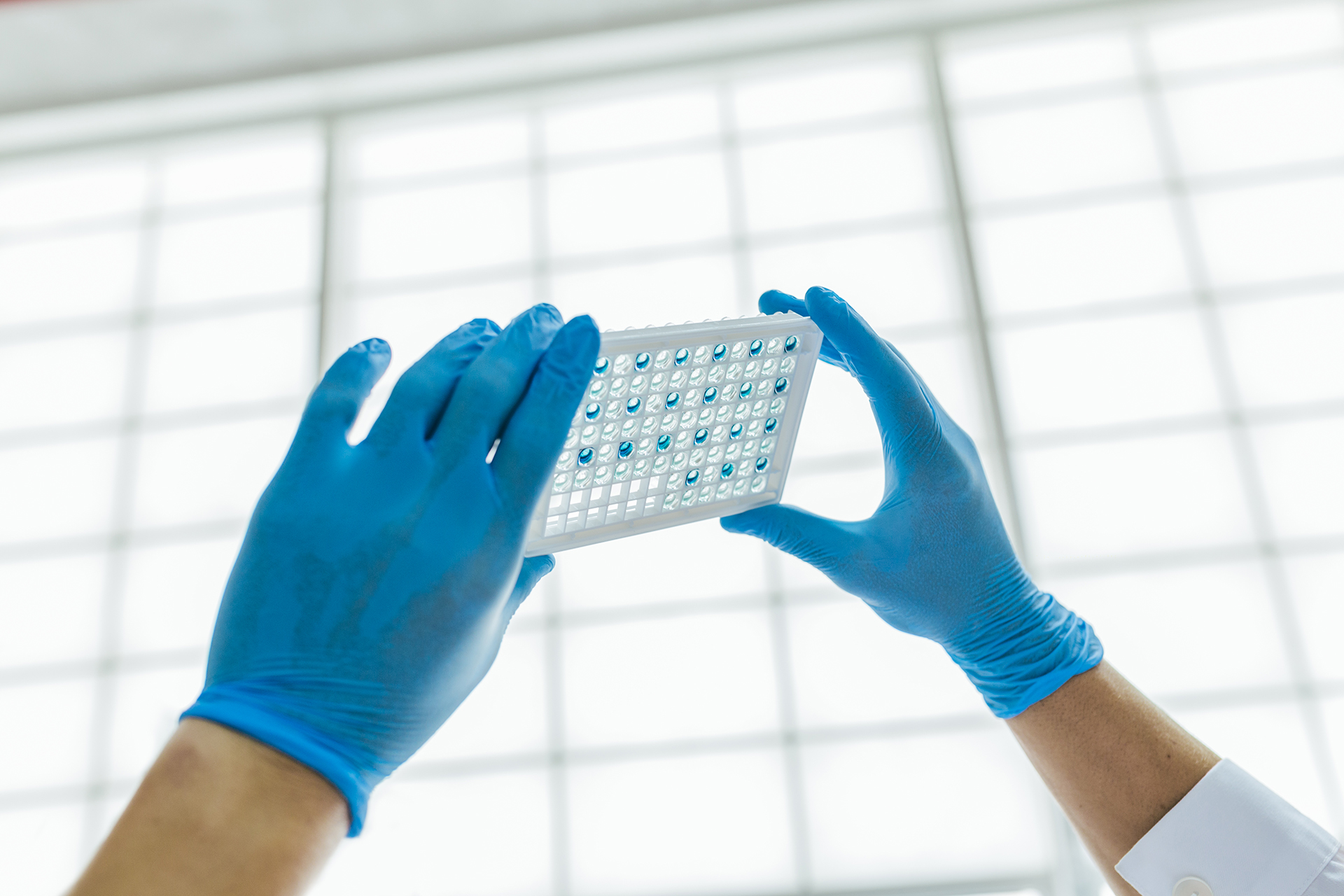[av_section min_height=” min_height_pc=’25’ min_height_px=’500px’ padding=’huge’ custom_margin=’0px’ custom_margin_sync=’true’ svg_div_top=” svg_div_top_color=’#333333′ svg_div_top_width=’100′ svg_div_top_height=’50’ svg_div_top_max_height=’none’ svg_div_top_opacity=” svg_div_bottom=” svg_div_bottom_color=’#333333′ svg_div_bottom_width=’100′ svg_div_bottom_height=’50’ svg_div_bottom_max_height=’none’ svg_div_bottom_opacity=” color=’alternate_color’ background=’bg_color’ custom_bg=” background_gradient_direction=’vertical’ background_gradient_color1=’#000000′ background_gradient_color2=’#ffffff’ background_gradient_color3=” src=’https://vaxart.com/wp-content/uploads/2022/03/pexels-andrea-piacquadio-3807629-1030×689.jpg’ attachment=’101′ attachment_size=’large’ attach=’scroll’ position=’center center’ repeat=’stretch’ video=” video_ratio=’16:9′ overlay_enable=’aviaTBoverlay_enable’ overlay_opacity=’0.7′ overlay_color=’#000000′ overlay_pattern=” overlay_custom_pattern=” shadow=’no-shadow’ bottom_border=’no-border-styling’ bottom_border_diagonal_color=’#333333′ bottom_border_diagonal_direction=” bottom_border_style=” custom_arrow_bg=” id=” custom_class=” template_class=” aria_label=” av_element_hidden_in_editor=’0′ av_uid=’av-c4eyxj’ sc_version=’1.0′]
[av_one_full first min_height=’av-equal-height-column’ vertical_alignment=’av-align-middle’ space=” margin=’0px’ margin_sync=’true’ padding=’0px’ padding_sync=’true’ border=” border_color=” radius=’0px’ radius_sync=’true’ background_color=” src=” attachment=” attachment_size=” background_position=’top left’ background_repeat=’no-repeat’ animation=” mobile_display=” av_uid=’av-bbjg3b’]
[av_heading heading=’Norovirus.‘ tag=’h1′ style=’blockquote modern-quote’ subheading_active=” show_icon=” icon=’ue800′ font=’entypo-fontello’ size=’70’ av-medium-font-size-title=” av-small-font-size-title=” av-mini-font-size-title=” subheading_size=’15’ av-medium-font-size=” av-small-font-size=” av-mini-font-size=” icon_size=” av-medium-font-size-1=” av-small-font-size-1=” av-mini-font-size-1=” color=’custom-color-heading’ custom_font=’#ffffff’ subheading_color=” seperator_color=” icon_color=” margin=” margin_sync=’true’ padding=’0′ icon_padding=’10’ headline_padding=” headline_padding_sync=’true’ link=” link_target=” id=” custom_class=” template_class=” av_uid=’av-kzrloymf’ sc_version=’1.0′ admin_preview_bg=”][/av_heading]
[/av_one_full]
[/av_section]
[av_section min_height=” min_height_px=’500px’ padding=’large’ shadow=’no-border-styling’ bottom_border=’no-border-styling’ id=” color=’main_color’ custom_bg=” src=” attachment=” attachment_size=” attach=’scroll’ position=’top left’ repeat=’no-repeat’ video=” video_ratio=’16:9′ overlay_opacity=’0.5′ overlay_color=” overlay_pattern=” overlay_custom_pattern=” av_uid=’av-oxnlz’]
[av_three_fifth first min_height=” vertical_alignment=’av-align-top’ space=” margin=’0px’ margin_sync=’true’ padding=’0px’ padding_sync=’true’ border=” border_color=” radius=’0px’ radius_sync=’true’ background_color=” src=” attachment=” attachment_size=” background_position=’top left’ background_repeat=’no-repeat’ animation=” mobile_display=” av_uid=’av-5p67kn’]
[av_textblock textblock_styling_align=” textblock_styling=” textblock_styling_gap=” textblock_styling_mobile=” size=’16’ av-medium-font-size=” av-small-font-size=” av-mini-font-size=” font_color=” color=” id=” custom_class=” template_class=” av_uid=’av-kzrlpegq’ sc_version=’1.0′ admin_preview_bg=”]
Typical symptoms of norovirus include dehydration, vomiting, diarrhea with abdominal cramps and nausea. In a study published in 2020, the cost of norovirus to the United States economy was estimated at $10.5 billion per annum, mainly driven by children under the age of five and adults over the age of 65.
Vaxart is developing a bivalent tablet vaccine for norovirus. Because norovirus is a pathogen that infects the small intestine, Vaxart believes a vaccine that produces mucosal antibodies locally in the intestine, in addition to systemic antibodies that circulate in the blood, may better protect against norovirus infection than an injectable vaccine.
Vaxart has completed two Phase 1 clinical trials with its monovalent oral tablet vaccine based on the GI.1 norovirus strain, demonstrating its norovirus tablet vaccine was well tolerated and generated broad systemic and mucosal immune responses. In the recently completed clinical Phase 1b dose-optimization study in healthy adults, in which Vaxart evaluated four different dosing regimens, all vaccine recipients (100%) in the high-dose group responded as measured by a significant increase in norovirus specific B cells of both IgA and IgG subtypes. In the same group, there was at least a two-fold increase of norovirus specific antibody titers in serum in more than 90% of recipients 56 days after dosing.
In a Phase 1 trial of its bivalent norovirus vaccine designed to assess safety and immunogenicity there were not significant differences in the adverse event rates to placebo. The IgA ASC response rates of 90-93% for GII.4 and 78-86% for GI.1 showed no interference between genotypes in the bivalent arm versus the monovalent arms of the study.
[/av_textblock]
[/av_three_fifth][av_two_fifth min_height=’av-equal-height-column’ vertical_alignment=’av-align-middle’ space=” margin=’0px’ margin_sync=’true’ padding=’18px’ padding_sync=’true’ border=’1′ border_color=’#e1e1e1′ radius=’0px’ radius_sync=’true’ background_color=” src=” attachment=” attachment_size=” background_position=’top center’ background_repeat=’contain’ animation=” mobile_display=” av_uid=’av-3ucy2f’]
[av_heading heading=’Vaccines’ tag=’h3′ style=’blockquote modern-quote modern-centered’ subheading_active=” show_icon=” icon=’ue800′ font=’entypo-fontello’ size=’20’ av-medium-font-size-title=” av-small-font-size-title=” av-mini-font-size-title=” subheading_size=” av-medium-font-size=” av-small-font-size=” av-mini-font-size=” icon_size=” av-medium-font-size-1=” av-small-font-size-1=” av-mini-font-size-1=” color=” custom_font=” subheading_color=” seperator_color=” icon_color=” margin=” margin_sync=’true’ padding=’10’ icon_padding=’10’ headline_padding=” headline_padding_sync=’true’ link=” link_target=” id=” custom_class=” template_class=” av_uid=’av-l0e0l7lp’ sc_version=’1.0′ admin_preview_bg=”][/av_heading]
[av_iconlist position=’left’ iconlist_styling=’av-iconlist-small’ custom_title_size=’20’ av-desktop-font-size-title=” av-medium-font-size-title=” av-small-font-size-title=” av-mini-font-size-title=” custom_content_size=” av-desktop-font-size=” av-medium-font-size=” av-small-font-size=” av-mini-font-size=” font_color=” custom_title=” custom_content=” color=” custom_font=” custom_bg=” custom_border=” gradient_color_direction=’vertical’ gradient_color_1=’#000000′ gradient_color_2=’#ffffff’ gradient_color_3=” border=” border_width=” border_width_sync=’true’ border_color=” box_shadow=” box_shadow_style=’0px,0px,0px,0px’ box_shadow_color=” animation=” sonar_effect_effect=” sonar_effect_color=” sonar_effect_duration=’1′ sonar_effect_scale=” sonar_effect_opac=’0.5′ alb_description=” id=” custom_class=” template_class=” av_uid=’av-l0e0oiw2′ sc_version=’1.0′ admin_preview_bg=”]
[av_iconlist_item title=’Covid-19′ icon=’ue862′ font=’entypo-fontello’ heading_tag=” heading_class=” link=’portfolio,73′ linktarget=” linkelement=” av_uid=’av-l0e0lssj’ sc_version=’1.0′ title_attr=”][/av_iconlist_item]
[av_iconlist_item title=’Norovirus’ icon=’ue862′ font=’entypo-fontello’ heading_tag=” heading_class=” link=’portfolio,99′ linktarget=” linkelement=” av_uid=’av-l0e0lssj’ sc_version=’1.0′ title_attr=”][/av_iconlist_item]
[av_iconlist_item title=’Influenza’ icon=’ue862′ font=’entypo-fontello’ heading_tag=” heading_class=” link=’portfolio,93′ linktarget=” linkelement=” av_uid=’av-l0e0lssj’ sc_version=’1.0′ title_attr=”][/av_iconlist_item]
[av_iconlist_item title=’HPV’ icon=’ue862′ font=’entypo-fontello’ heading_tag=” heading_class=” link=’portfolio,81′ linktarget=” linkelement=” av_uid=’av-l0e0lssj’ sc_version=’1.0′ title_attr=”][/av_iconlist_item]
[/av_iconlist]
[av_button label=’PUBLICATIONS’ icon_select=’yes-right-icon’ icon=’ue875′ font=’entypo-fontello’ icon_hover=’aviaTBicon_hover’ link=’page,139′ link_target=” size=’x-large’ position=’center’ label_display=” title_attr=” color_options=” color=’theme-color’ custom_bg=’#444444′ custom_font=’#ffffff’ btn_color_bg=’theme-color’ btn_custom_grad_direction=’vertical’ btn_custom_grad_1=’#000000′ btn_custom_grad_2=’#ffffff’ btn_custom_grad_3=” btn_custom_grad_opacity=’0.7′ btn_custom_bg=’#444444′ btn_color_bg_hover=’theme-color-highlight’ btn_custom_bg_hover=’#444444′ btn_color_font=’theme-color’ btn_custom_font=’#ffffff’ btn_color_font_hover=’white’ btn_custom_font_hover=’#ffffff’ border=” border_width=” border_width_sync=’true’ border_color=” border_radius=” border_radius_sync=’true’ box_shadow=” box_shadow_style=’0px,0px,0px,0px’ box_shadow_color=” hover_opacity=” sonar_effect_effect=” sonar_effect_color=” sonar_effect_duration=’1′ sonar_effect_scale=” sonar_effect_opac=’0.5′ id=” custom_class=” template_class=” av_uid=’av-l0e0p1sc’ sc_version=’1.0′ admin_preview_bg=”]
[/av_two_fifth][av_hr class=’invisible’ icon_select=’yes’ icon=’ue808′ font=’entypo-fontello’ position=’center’ shadow=’no-shadow’ height=’25’ custom_border=’av-border-thin’ custom_width=’50px’ custom_margin_top=’30px’ custom_margin_bottom=’30px’ custom_border_color=” custom_icon_color=” id=” custom_class=” template_class=” av_uid=’av-l3qdiynn’ sc_version=’1.0′ admin_preview_bg=”]
[av_one_fifth first min_height=” vertical_alignment=’av-align-top’ space=” row_boxshadow=” row_boxshadow_color=” row_boxshadow_width=’10’ custom_margin=” margin=’0px’ mobile_breaking=” mobile_column_order=” min_col_height=” padding=” svg_div_top=” svg_div_top_color=’#333333′ svg_div_top_width=’100′ svg_div_top_height=’50’ svg_div_top_max_height=’none’ svg_div_top_flip=” svg_div_top_invert=” svg_div_top_front=” svg_div_top_opacity=” svg_div_top_preview=” svg_div_bottom=” svg_div_bottom_color=’#333333′ svg_div_bottom_width=’100′ svg_div_bottom_height=’50’ svg_div_bottom_max_height=’none’ svg_div_bottom_flip=” svg_div_bottom_invert=” svg_div_bottom_front=” svg_div_bottom_opacity=” svg_div_bottom_preview=” border=” border_style=’solid’ border_color=” radius=” column_boxshadow=” column_boxshadow_color=” column_boxshadow_width=’10’ background=’bg_color’ background_color=” background_gradient_direction=’vertical’ background_gradient_color1=’#000000′ background_gradient_color2=’#ffffff’ background_gradient_color3=” src=” background_position=’top left’ background_repeat=’no-repeat’ highlight=” highlight_size=” animation=” link=” linktarget=” link_hover=” title_attr=” alt_attr=” mobile_display=” mobile_col_pos=’0′ id=” custom_class=” template_class=” aria_label=” av_uid=’av-2qk83′ sc_version=’1.0′]
[/av_one_fifth][av_three_fifth min_height=” vertical_alignment=’av-align-top’ space=” row_boxshadow=” row_boxshadow_color=” row_boxshadow_width=’10’ custom_margin=” margin=’0px’ mobile_breaking=” mobile_column_order=” min_col_height=” padding=” svg_div_top=” svg_div_top_color=’#333333′ svg_div_top_width=’100′ svg_div_top_height=’50’ svg_div_top_max_height=’none’ svg_div_top_flip=” svg_div_top_invert=” svg_div_top_front=” svg_div_top_opacity=” svg_div_top_preview=” svg_div_bottom=” svg_div_bottom_color=’#333333′ svg_div_bottom_width=’100′ svg_div_bottom_height=’50’ svg_div_bottom_max_height=’none’ svg_div_bottom_flip=” svg_div_bottom_invert=” svg_div_bottom_front=” svg_div_bottom_opacity=” svg_div_bottom_preview=” border=” border_style=’solid’ border_color=” radius=” column_boxshadow=” column_boxshadow_color=” column_boxshadow_width=’10’ background=’bg_color’ background_color=” background_gradient_direction=’vertical’ background_gradient_color1=’#000000′ background_gradient_color2=’#ffffff’ background_gradient_color3=” src=” background_position=’top left’ background_repeat=’no-repeat’ highlight=” highlight_size=” animation=” link=” linktarget=” link_hover=” title_attr=” alt_attr=” mobile_display=” mobile_col_pos=’0′ id=” custom_class=” template_class=” aria_label=” av_uid=’av-27a0f’ sc_version=’1.0′]
[av_video src=’https://www.youtube.com/watch?v=eXsxXQkwVuY’ mobile_image=’https://vaxart.com/wp-content/uploads/2022/03/norovirus-preview-1030×515.png’ attachment=’156′ attachment_size=’large’ format=’16-9′ width=’16’ height=’9′ conditional_play=’lightbox’ id=” custom_class=” template_class=” av_uid=’av-l35pw0na’ sc_version=’1.0′]
[/av_three_fifth][av_one_fifth min_height=” vertical_alignment=’av-align-top’ space=” row_boxshadow=” row_boxshadow_color=” row_boxshadow_width=’10’ custom_margin=” margin=’0px’ mobile_breaking=” mobile_column_order=” min_col_height=” padding=” svg_div_top=” svg_div_top_color=’#333333′ svg_div_top_width=’100′ svg_div_top_height=’50’ svg_div_top_max_height=’none’ svg_div_top_flip=” svg_div_top_invert=” svg_div_top_front=” svg_div_top_opacity=” svg_div_top_preview=” svg_div_bottom=” svg_div_bottom_color=’#333333′ svg_div_bottom_width=’100′ svg_div_bottom_height=’50’ svg_div_bottom_max_height=’none’ svg_div_bottom_flip=” svg_div_bottom_invert=” svg_div_bottom_front=” svg_div_bottom_opacity=” svg_div_bottom_preview=” border=” border_style=’solid’ border_color=” radius=” column_boxshadow=” column_boxshadow_color=” column_boxshadow_width=’10’ background=’bg_color’ background_color=” background_gradient_direction=’vertical’ background_gradient_color1=’#000000′ background_gradient_color2=’#ffffff’ background_gradient_color3=” src=” background_position=’top left’ background_repeat=’no-repeat’ highlight=” highlight_size=” animation=” link=” linktarget=” link_hover=” title_attr=” alt_attr=” mobile_display=” mobile_col_pos=’0′ id=” custom_class=” template_class=” aria_label=” av_uid=’av-1i7p3′ sc_version=’1.0′]
[/av_one_fifth][/av_section][av_masonry_gallery ids=’104,103,102,101,100′ caption_elements=’none’ caption_styling=” caption_display=’always’ size=’fixed’ orientation=” image_size=’masonry’ gap=’large’ columns=’5′ av-medium-columns=” av-small-columns=” av-mini-columns=” items=’-1′ paginate=’pagination’ color=’custom’ custom_bg=’#191919′ overlay_fx=’active’ animation=’active’ container_links=’active’ link_dest=” lightbox_text=’no_text’ img_scrset=” lazy_loading=’disabled’ id=” custom_class=” template_class=” av_uid=’av-2f0iuv’ sc_version=’1.0′]
[av_one_third first min_height=” vertical_alignment=’av-align-top’ space=” row_boxshadow=” row_boxshadow_color=” row_boxshadow_width=’10’ custom_margin=” margin=’0px’ mobile_breaking=” mobile_column_order=” min_col_height=” padding=” svg_div_top=” svg_div_top_color=’#333333′ svg_div_top_width=’100′ svg_div_top_height=’50’ svg_div_top_max_height=’none’ svg_div_top_flip=” svg_div_top_invert=” svg_div_top_front=” svg_div_top_opacity=” svg_div_top_preview=” svg_div_bottom=” svg_div_bottom_color=’#333333′ svg_div_bottom_width=’100′ svg_div_bottom_height=’50’ svg_div_bottom_max_height=’none’ svg_div_bottom_flip=” svg_div_bottom_invert=” svg_div_bottom_front=” svg_div_bottom_opacity=” svg_div_bottom_preview=” border=” border_style=’solid’ border_color=” radius=” column_boxshadow=” column_boxshadow_color=” column_boxshadow_width=’10’ background=’bg_color’ background_color=” background_gradient_direction=’vertical’ background_gradient_color1=’#000000′ background_gradient_color2=’#ffffff’ background_gradient_color3=” src=” background_position=’top left’ background_repeat=’no-repeat’ highlight=” highlight_size=” animation=” link=” linktarget=” link_hover=” title_attr=” alt_attr=” mobile_display=” mobile_col_pos=’0′ id=” custom_class=” template_class=” aria_label=” av_uid=’av-u1hb’ sc_version=’1.0′][/av_one_third]


